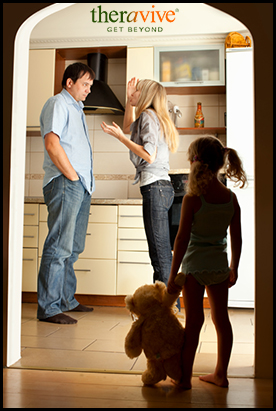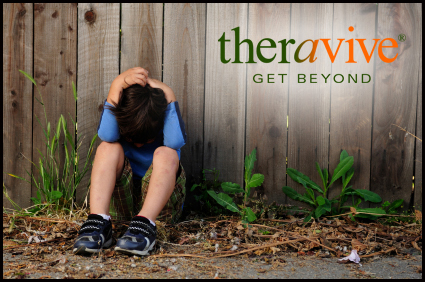 Children of Divorced Parents
Children of Divorced Parents
If you really take time to think about it, it's tough enough on kids to be the children of divorced parents. It's difficult for them to understand that it's okay to love both parents and to depend on both parents. Divorce hurts. Everyone in the family gets hurt to some extent. Sometimes the kids are scarred for years, especially if their parents are at war for a long time and are always fighting in front of them. Some studies have even shown that divorced parents who fight in front of their children can cause more harm to them than did the divorce itself.
Many people who are divorcing try to control their exes, which makes absolutely no sense. Others try to hurt their exes by tying up the divorce in court, subjecting their children to court appearances and exposing them to many things that should be of no concern to them. Exes typically fight over child support, visitation, and custody agreements. Involving your children in these happenings and subjecting them to nasty court drama only adds to their emotional scars. Anger and fighting only escalates the conflict. In the end, the ones who lose are the children.
People who yell and scream and fight in front of their children have no personal power to control themselves. Belittling your child's other parent is a form of abuse in that it can permanently affect your child's self-esteem. If you criticize your ex, you are, in effect, criticizing your child since your child is one-half of that parent as well as one-half of you. You can bank on it; you will do permanent damage to your children if you yell at, scream at, fight with, or talk about your ex.
Taking Responsibility
Many times guilt surrounding how a person acted while married plays a large part in how they act during a divorce. These people need to blame their exes instead of taking responsibility for what they've done wrong in the marriage. Consider that last sentence if you, yourself, tend to act out and blame your ex.
Just as you wouldn't allow your children to curse, taunt, or threaten others, you’re doing so, especially in front of them and to their other parent is nothing short of verbal abuse. You are a verbal abuser if you try to always have the last word, pick fights, and threaten to go back to court over small issues. If you talk bad about your ex, this affects your children. Parental stress affects children tremendously. Keep your integrity and don't lower yourself to badmouth or fight with your ex.
So, now that you are committed to growing up and not badmouthing, threatening, or fighting with your ex, there are many things you can do to ensure an easier transition for your kids during and after your divorce.
The following are five important things to consider:
1. Never talk about your ex with your children. Don't speak negatively about your ex when your children are anywhere near enough to overhear you. Children will eventually bond with the parent, or both parents, when they feel safe. Your kids can't feel safe with you if you are bashing your ex.
2. Never ask your child to convey a message to your ex. The only thing that does is put your child in the middle of your drama. Find a different way to discuss things with your ex.
3. Try to think of your ex as the mother or father of your children, rather than as your ex. The goal is to work together with other parent of your children to become the best parents possible.
4. Remember that you chose this person earlier in your life, so this person must have some good qualifies. Focus on those good, positive qualities, rather than on the negative ones.
5. Never ask your children question about what your ex is doing or grill them about who your ex is seeing or spending time with. Grilling your children will only cause you to lose their trust.
The Three Paths You Can Take
There really are three behaviors that divorcing parents can choose. They can choose to argue, to disengage, or to cooperate. The behavior that you choose is a direct reflection of your maturity level. Think about your children, rather than yourself, if you are going through a divorce with their other parent. You can yell and scream and want to argue all the time; you can totally disengage and not say a word to your ex; or you can choose to cooperate and work things out with your ex to benefit your children and their well-being. People who yell all the time, don't have personal control or power, and try to dominate others. Never let your child witness you yelling at your ex. Screaming, threatening, cursing, and name calling are all forms of verbal abuse, as is twisting the truth, picking fight, and referring to your ex as stupid or dumb. If you think your child is not affected by your behavior, you are in total denial. Denial blurs reality by your seeing everything wrong that your ex does and everything right that you do. There is no excuse for bad behavior, for you or anyone else. Rationalizing such things is just making excuses for yourself. If you aren't willing to look at your own actions, you are in denial. Grow up and don't add to the loss your children are already feeling knowing that their family is no longer intact. Be mature and deal with issues with your children's best interest at heart. This is the best thing you can do for your kids in this situation.
Some More Tips
Once visitation is established and is in effect, be sure to show up on time to drop off or pick up your kids. You send a message that your child is not important to you if you do anything other than be on time. Some children sit outside or watch out their bedroom windows for their parent to show up to pick them up. Sometimes it never happens. In your kids' minds, you are abandoning them. They may find it easy to pretend it doesn't matter, but they are keeping score, and this will come up at some point in the future.
If and when you have a new partner, be sure that person doesn't intensify bad feelings from your children. Beware of new love interests who always try to schedule things with you during the time you have your kids or ones that want you to choose between your kids and them. There is, of course, no choice. Your children are first.
 Learn to get on with your life, rather than being consumed by fighting with your ex. Instead of displaying anger, use that energy to provide a change and make a difference. Decide to work with your ex, instead of against your ex, in order to give your kids a chance for a happy tomorrow. You only get one shot at raising your children. Although at times it seems like a long time, in the scheme of things, those child rearing years are quite short.
Learn to get on with your life, rather than being consumed by fighting with your ex. Instead of displaying anger, use that energy to provide a change and make a difference. Decide to work with your ex, instead of against your ex, in order to give your kids a chance for a happy tomorrow. You only get one shot at raising your children. Although at times it seems like a long time, in the scheme of things, those child rearing years are quite short.
There are a lot of books about children and divorce. Perhaps the most eye opening one contains a "Book of Rights of a Child in Divorce", by Robert E. Emery, Ph.D.
● To be told that my mother and father still love me and will never divorce me.
● To be told that the divorce is not my fault and not to be told about the adult problems that caused it.
● To be treated as a human being---not as another piece of property to be fought over, bargained over or threatened.
● To have decisions about me based on my best interest, rather than past wrongs, hurt feelings, or parent's needs.
● To love both my parents without being forced to choose or feel guilty.
● To know both my parents through regular, frequent involvement in my life.
● To have the financial support of both my father and mother.
● To be spared hearing bad hurtful comments about either of my parents which have no useful purpose.
● Not to be asked to tell a lie or act as a spy or messenger.
● To be allowed to care about others without having to choose or feel guilty.
The best way to proceed with your ex after a divorce is for both of you to sit down and figure out the best way to proceed with raising your children in a healthy, amicable way. Remember that any good parent puts the needs of their children above all others during such a time. Although it may be hard at times to hold your tongue in the presence of your children, you will be glad you did down the road. Your children will most likely be close to the parent who doesn't play games during the divorce. Hopefully in your case, this can be both you and your ex.
The Relationship Center of Orange County has experienced counselors available to speak with your children and help them through all the phases of divorce. Although your children may talk to you about nearly anything, it is important to put them in touch with a counselor who is not involved or attached to either parent. You should put them in contact with a counselor who will allow them to vent about both parents. Call the Relationship Center of Orange County today or schedule an appointment online.
About the Author

OC Relationship Center
, LMFTWe started OC Relationship Center because we believe that relationships are the place where everyone should feel the safest and experience the most joy. And that is what our entire mission is based upon. That relationship may be with someone you love, live with, work with or even yourself. Our caring, professional and licensed clinicians want to help you with the skills to get what you want in your relationships - whether you are single, dating, living together, married, divorced or widowed.
Office Location:
1400 Bristol Street North, Suite 245B
Newport Beach, California
92660
United States
Phone: (949) 220-3211
Contact OC Relationship Center
Professional Website:
www.OCRelationshipCenter.com